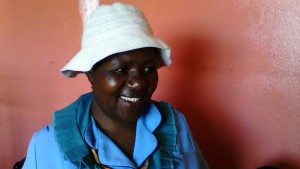Holidays are synonymous with children spending time with their families, but there are many children who are forced to spend the holidays without their families. Ntshireletseng Molefe is a caregiver at a home for mentally and physically challenged children in Mount Fletcher in the Eastern Cape. She spoke to ZIMASA MATIWANE about the challenges of caring for children with disabilities.
I did not want to do this job, in fact I hated it, but I think God chose it for me.
It was hard at first to come here and take care of these children. It took time to love the job and, most importantly, to love the children as my own.
This is my 11th year looking after disabled children and although it is difficult work that requires a lot of patience, I have gotten used to it.
But one thing still breaks my heart: the attitude of our communities towards their children living with disabilities.
Out of the 20 children we care for here at Mount Fletcher Cheshire Home for Disabled Children only six were fetched by their parents for Christmas. Seeing them here alone on Christmas when other children are with their families getting Christmas clothes breaks my heart. I take care of them, I love them, but I know nothing beats a mother’s love. Disabled children need a mother’s love too.
Those few who children do visit their homes during the holidays come back looking like they were neglected. They get here thin, their teeth looking like they were not brushed since they left Cheshire Home, some come back with sores, others with nappy rash. The parents do not even give them a haircut or remove pubic hair. They even bring them back with dirty clothes.

For instance, Nomonde* is a 22-year-old girl. I found her here, but she only visited home once. Her mother dropped her off, and when we tried to contact her we could not get hold of her. She was eventually traced by social workers, who found her alive and well.
She just deserted the child. That is when December visits stopped being compulsory. The home and social workers decided that those parents who do not want their children can just leave them and never come back.
As a mother I couldn’t understand how one would just abandon their own child, but with time I realised that mothers do not have the support required to raise a disabled child. In our communities, disabled people are rejected.No neighbour or mother-in-law or father will change the sanitary pads or nappies of an 18-year-old to assist the mother. They say it’s disgusting.
Some of these children eat their own poo. They need special care and without family and community support their mothers, most of them still young themselves, do not cope. It’s a sad situation.
Every time I get home and spend time with my children I think of those children at the home whose parents are alive. Some can afford to buy them clothes or visit but don’t – they can’t even stand to spend a single day with them, or bring themselves to touch them.
It hurts; it is the hardest part of my job.
I wish our communities could be educated about disabilities. Maybe then they can understand that these children are not monsters, but little angels who are different and need love and support just like able children.
*Name changed.
-As told to Zimasa Matiwane
-Image via The Cheshire Home website.
Editor’s Note: Find out more about the Mount Fletcher Cheshire Home and how
you can get involved.









